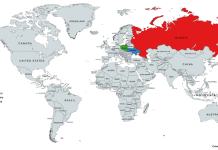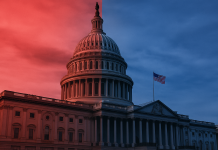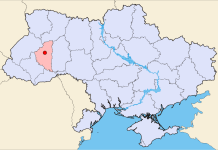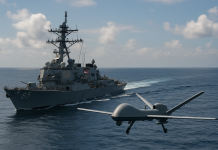
Tensions escalated in the Middle East this week as Israel conducted airstrikes on targets in Syria, including areas in Damascus and the southern city of Sweida. The Israeli military stated the operation was launched to protect Druze communities under threat in southern Syria, where clashes have intensified between Druze militias, Bedouin tribes, and Syrian government forces.
Strikes in Damascus hit the Syrian Defense Ministry and an area near the presidential palace. According to Syrian sources, the strikes resulted in multiple casualties, including members of the security forces and civilians. The Syrian government condemned the attacks, accusing Israel of targeting civilian infrastructure and interfering in Syria’s internal affairs.
The fighting in Sweida began with clashes between local Druze militias and Bedouin factions, which escalated into widespread violence across the region. Homes were burned, neighborhoods shelled, and residents displaced. Syrian government forces were deployed in an effort to restore control, but their intervention led to further confrontations with the Druze fighters.
In response to the violence, Druze leaders and Syria’s interior ministry announced a ceasefire, though it remains unclear whether the agreement will hold. The interim Syrian government, led by Ahmed al-Sharaa, issued reassurances to the Druze population that their rights and safety would be maintained. Sharaa’s government has faced increasing unrest since taking power after the fall of Bashar al-Assad’s regime last year.
Israel’s Prime Minister Benjamin Netanyahu defended the strikes, stating that Israel would not allow a buildup of hostile forces near its border and reaffirmed the country’s intent to defend the Druze. Druze communities also exist in northern Israel and Lebanon, and many Israeli Druze serve in the country’s military. This connection has prompted pressure within Israel to support their counterparts in Syria.
The international response has been mixed. The United Nations Secretary-General condemned the strikes, and Turkey labeled them a threat to Syria’s fragile security efforts. The United Arab Emirates, a country that normalized relations with Israel in 2020, also criticized the action.
The United States, which has recently eased sanctions on Syria and made efforts to stabilize relations with both the Sharaa administration and Israel, expressed concern over the fighting. Secretary of State Marco Rubio stated that Washington was in contact with both governments and was working to bring the conflict to a halt. However, the U.S. did not endorse Israel’s strikes and communicated its opposition to the escalation.
The violence has taken a heavy toll. Human rights organizations report that hundreds have died in the fighting, including children and noncombatants. Observers say the situation is being worsened by sectarian tensions and longstanding grievances between minority groups.
The United Nations Security Council is set to hold an emergency session to address the violence and examine steps toward de-escalation. Meanwhile, fears persist that the conflict could widen if ceasefires continue to collapse or if additional outside actors become involved. The fighting reflects deeper instability in the region, even as diplomatic efforts continue behind the scenes.
Israel = Green
Syria = Orange
Image is licensed under the Creative Commons Attribution-Share Alike 4.0 International license and was created using MapChart (https://mapchart.net).







